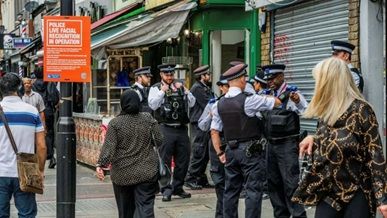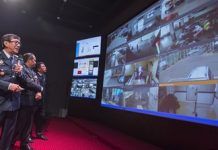The use of a controversial form of facial recognition technology by the UK’s largest police force has surged this year, with the number of deployments more than three times higher than in the previous four years combined.
London’s Metropolitan Police used the technology 117 times from January to the end of August — up from 32 times in total between 2020 and 2023 — according to data compiled by the City Hall Greens, a group of London Assembly members from the party. Campaigners and some academics have criticised the use of facial scanning for being inaccurate, biassed and for leading to racial discrimination resulting in wrongful arrests due to misidentification.
However, the Met has said the tool helps to prevent and detect crime, and to locate people on their “watchlist”. Some policymakers have also encouraged the police to use facial scanning more widely. The Met’s live facial recognition deployment records showed that an estimated 770,966 people in the capital had their faces scanned over a period of almost five years, the analysis found. The City Hall Greens have previously called for curbs on the use of such technology.
The scanning technology was used for 716 hours and 25 minutes in total, with an average duration of just over five hours. The most targeted boroughs were Croydon and Westminster, according to the data. “Live facial recognition surveillance turns the public into walking ID cards subject to a constant police line-up,” said Silkie Carlo, director of campaign group Big Brother Watch, which advocates for restrictions on state surveillance.
“It poses one of the most severe threats to privacy in a generation.” Carlo is pursuing a joint legal challenge against the Met’s use of live facial recognition technology with an alleged victim of misidentification. Lindsey Chiswick, the Met’s director of intelligence and the National Police Chiefs’ Council lead on facial recognition technology, told the FT the force “operate it at a threshold where [National Physical Laboratory] testing has shown there to be zero bias”, referring to the UK’s national measurement institute. She added that the live facial technology the Met uses was 89 per cent accurate, according to the testing, and people’s biometric data was “instantaneously” deleted if not on a watchlist.








